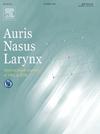Affinity purification of the outer hair cell motor protein prestin using His-tag
IF 1.5
4区 医学
Q2 OTORHINOLARYNGOLOGY
引用次数: 0
Abstract
Objective
The high sensitivity and broad frequency selectivity of mammalian hearing are associated with the somatic motility of outer hair cells (OHCs) in the cochlea. This motility is considered to be induced by conformational changes of the motor protein prestin expressing in the lateral plasma membrane of OHCs. Since its identification in 2000, prestin has been actively investigated and its structure and function have gradually been elucidated. These successes are partly due to the development of efficient expression and purification system of the membrane proteins including prestin. To obtain further understandings of prestin, the development of various types of such systems will be essential. However, recent study protocols on membrane proteins have often employed HEK293 cells and have become complexed with expression genes carrying several proteins and peptides for stabilization and purification of the expressed proteins. In the present study, a simple expression and purification system using Chinese hamster ovary (CHO) cells and Hi-tag was developed.
Methods
Full length gerbil prestin was transfected into modified mammalian expression vectors with C-terminal 6 × His-tag. After drug selection with G418 for 4 weeks, single colonies were isolated by limiting dilution method. Cell lines highly expressing prestin were selected (named 3D5, 4D7 and 3C8). These cells were gently disrupted using a Dounce tissue grinder. Membrane fractions were extracted by ultracentrifugation and affinity chromatography was performed. The efficiency of the purification process was evaluated by quantitative Western blotting using a standard protein.
Results
Among the cell lines constructed, Western blotting analysis showed bands at around 100 kDa and the highest intensity was confirmed from the 3C8 cell line, indicating that this cell line has the highest expression of prestin molecules. The membrane fraction was therefore extracted from this cell line and subjected to the following purification procedure. It was found that 78.7 μg of prestin was purified from 2.0 × 109 CHO cells.
Conclusion
In the present study, 78.7 μg of prestin was purified from 2.0 × 109 CHO cells, which stably expressing 6 × His-tagged prestin, by extracting cell membrane fractions and standard affinity chromatography for His-tag.
利用his标签亲和纯化外毛细胞运动蛋白prestin
目的哺乳动物听觉的高灵敏度和宽频率选择性与耳蜗外毛细胞的体运动性有关。这种运动被认为是由OHCs侧质膜中表达的运动蛋白prestin的构象变化引起的。自2000年发现prestin以来,人们对其进行了积极的研究,其结构和功能逐渐被阐明。这些成功的部分原因是由于开发了高效的膜蛋白表达和纯化系统,包括prestin。为了进一步了解prestin,开发各种类型的这类系统将是必不可少的。然而,最近的膜蛋白研究方案经常使用HEK293细胞,并与携带几种蛋白质和肽的表达基因复杂,以稳定和纯化表达蛋白。本研究利用中国仓鼠卵巢(CHO)细胞和Hi-tag建立了一个简单的表达和纯化系统。方法将沙鼠prestin全长转染到c -末端6 × His-tag修饰的哺乳动物表达载体中。G418选药4周后,用极限稀释法分离单个菌落。选择高表达prestin的细胞系(命名为3D5、4D7和3C8)。这些细胞被Dounce组织粉碎机轻轻破坏。采用超离心法提取膜组分,并进行亲和层析。使用标准蛋白进行定量Western blotting,评估纯化过程的效率。结果在构建的细胞系中,Western blotting分析显示条带在100 kDa左右,其中3C8细胞系的条带强度最高,表明该细胞系prestin分子的表达量最高。因此,从该细胞系中提取膜部分并进行以下纯化程序。从2.0 × 109个CHO细胞中纯化出78.7 μg的prestin。结论从2.0 × 109个稳定表达6 × his标记prestin的CHO细胞中,通过提取细胞膜组分和His-tag的标准亲和层析,获得了78.7 μg的prestin。
本文章由计算机程序翻译,如有差异,请以英文原文为准。
求助全文
约1分钟内获得全文
求助全文
来源期刊

Auris Nasus Larynx
医学-耳鼻喉科学
CiteScore
3.40
自引率
5.90%
发文量
169
审稿时长
30 days
期刊介绍:
The international journal Auris Nasus Larynx provides the opportunity for rapid, carefully reviewed publications concerning the fundamental and clinical aspects of otorhinolaryngology and related fields. This includes otology, neurotology, bronchoesophagology, laryngology, rhinology, allergology, head and neck medicine and oncologic surgery, maxillofacial and plastic surgery, audiology, speech science.
Original papers, short communications and original case reports can be submitted. Reviews on recent developments are invited regularly and Letters to the Editor commenting on papers or any aspect of Auris Nasus Larynx are welcomed.
Founded in 1973 and previously published by the Society for Promotion of International Otorhinolaryngology, the journal is now the official English-language journal of the Oto-Rhino-Laryngological Society of Japan, Inc. The aim of its new international Editorial Board is to make Auris Nasus Larynx an international forum for high quality research and clinical sciences.
 求助内容:
求助内容: 应助结果提醒方式:
应助结果提醒方式:


